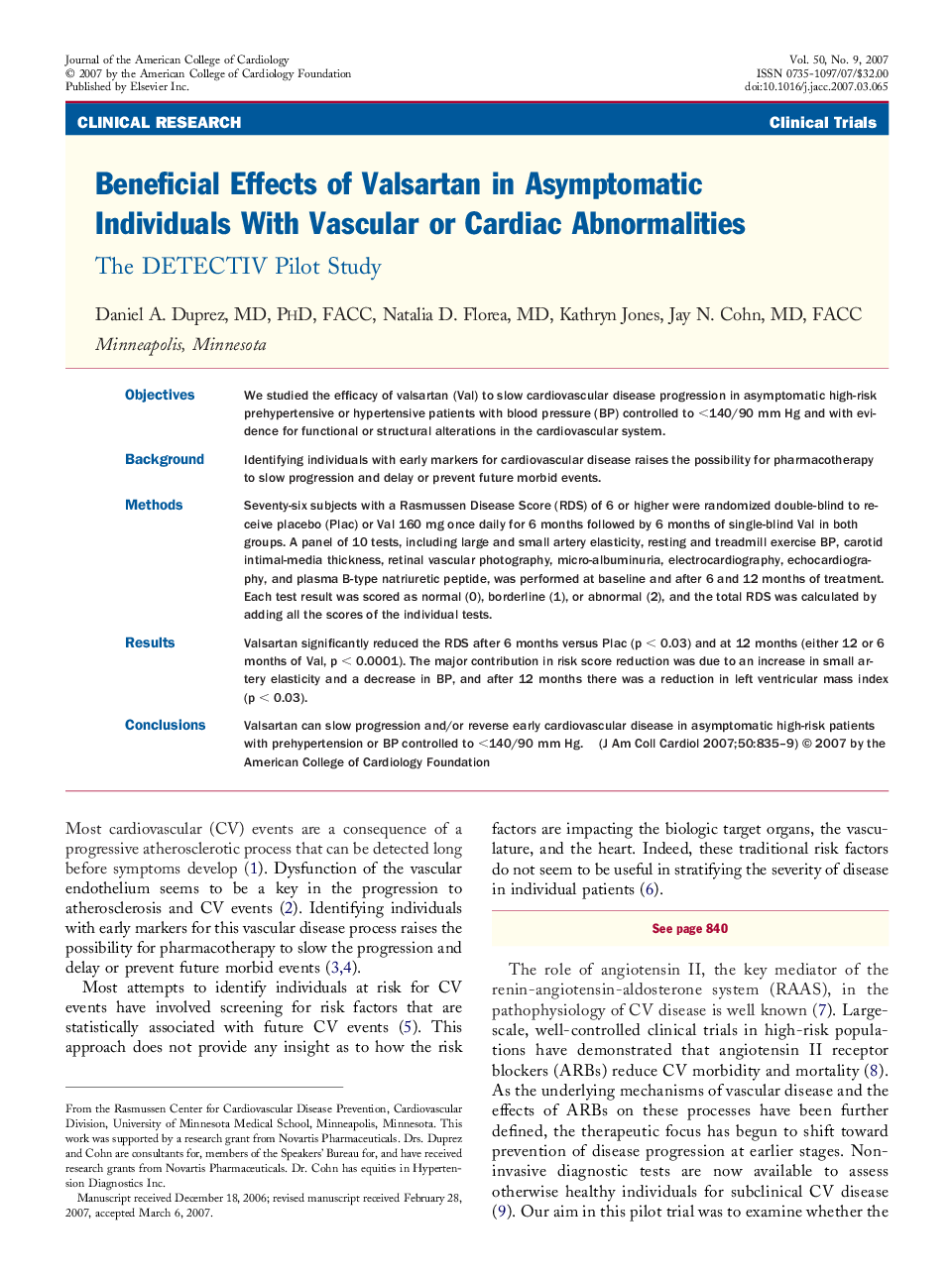| Article ID | Journal | Published Year | Pages | File Type |
|---|---|---|---|---|
| 2951038 | Journal of the American College of Cardiology | 2007 | 5 Pages |
ObjectivesWe studied the efficacy of valsartan (Val) to slow cardiovascular disease progression in asymptomatic high-risk prehypertensive or hypertensive patients with blood pressure (BP) controlled to <140/90 mm Hg and with evidence for functional or structural alterations in the cardiovascular system.BackgroundIdentifying individuals with early markers for cardiovascular disease raises the possibility for pharmacotherapy to slow progression and delay or prevent future morbid events.MethodsSeventy-six subjects with a Rasmussen Disease Score (RDS) of 6 or higher were randomized double-blind to receive placebo (Plac) or Val 160 mg once daily for 6 months followed by 6 months of single-blind Val in both groups. A panel of 10 tests, including large and small artery elasticity, resting and treadmill exercise BP, carotid intimal-media thickness, retinal vascular photography, micro-albuminuria, electrocardiography, echocardiography, and plasma B-type natriuretic peptide, was performed at baseline and after 6 and 12 months of treatment. Each test result was scored as normal (0), borderline (1), or abnormal (2), and the total RDS was calculated by adding all the scores of the individual tests.ResultsValsartan significantly reduced the RDS after 6 months versus Plac (p < 0.03) and at 12 months (either 12 or 6 months of Val, p < 0.0001). The major contribution in risk score reduction was due to an increase in small artery elasticity and a decrease in BP, and after 12 months there was a reduction in left ventricular mass index (p < 0.03).ConclusionsValsartan can slow progression and/or reverse early cardiovascular disease in asymptomatic high-risk patients with prehypertension or BP controlled to <140/90 mm Hg.
